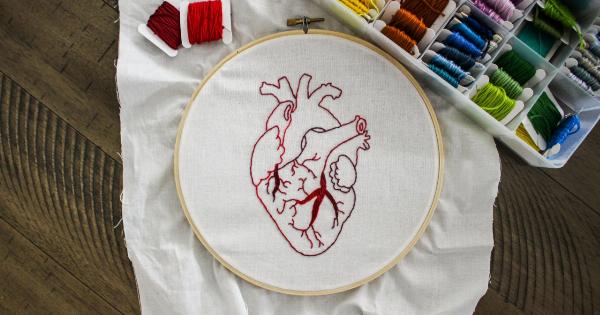Anger is a common emotion that everyone experiences from time to time. It’s a natural response to situations that you perceive as threatening, frustrating, or unjust.
While anger can be a healthy and necessary emotion, it can also have physiological effects on your body if it’s not managed properly. In this article, we’ll explore the impact of anger on the brain and heart.
What is Anger?
Anger is a strong feeling of displeasure or hostility towards something or someone. It’s a normal human emotion that can range from mild irritation to intense fury.
Anger can be triggered by various internal and external factors, such as stress, frustration, disappointment, injustice, disrespect, or fear. It can manifest in different ways, such as yelling, cursing, slamming doors, throwing objects, or physical aggression.
How Does Anger Affect the Brain?
Anger triggers a complex chain of reactions in the brain that involves different regions and neurotransmitters.
When you confront a situation that provokes anger, your amygdala, a small almond-shaped structure in the limbic system, recognizes the threat and sends a signal to your hypothalamus and pituitary gland to release stress hormones, such as cortisol and adrenaline, into your bloodstream. These hormones activate your sympathetic nervous system, which prepares your body for fight or flight by increasing your heart rate, blood pressure, respiration, and muscle tension.
At the same time, your prefrontal cortex, the part of the brain responsible for reasoning, decision-making, and impulse control, also gets activated. However, its function can be impaired by anger, especially if it’s intense and prolonged.
Anger can impair your ability to think clearly, assess risks, and regulate emotions. It can also increase your tendency to rely on stereotypes, biases, and negative assumptions about others.
Moreover, chronic anger can damage your brain and increase the risk of cognitive decline and mental disorders.
Studies have shown that people who have high levels of anger and aggression in their daily lives have thinner prefrontal cortices and smaller hippocampi, which are involved in memory and learning. They are also more prone to depression, anxiety, and substance abuse.
How Does Anger Affect the Heart?
Anger can also have a significant impact on your cardiovascular system and increase the risk of heart disease. When you experience anger, your blood pressure and heart rate can rise abruptly, putting extra stress on your blood vessels and heart muscle.
This can cause microtears in your arteries, which can lead to the formation of plaques, or fatty deposits, that clog your arteries and reduce blood flow.
Moreover, anger can also trigger arrhythmias, or abnormal heart rhythms, that can be life-threatening in some cases.
A study published in the European Heart Journal found that people who had angry outbursts were three times more likely to have a heart attack within the next two hours than those who didn’t. Another study published in the Journal of the American College of Cardiology found that people who had high levels of anger had a 19% higher risk of developing coronary heart disease over a 10-year period.
How Can You Manage Anger?
Learning how to manage your anger can help you reduce its negative impact on your body and mind. Here are some tips:.
- Recognize your triggers: Identify the situations or people that tend to trigger your anger and try to avoid or prepare for them.
- Practice relaxation techniques: Use deep breathing, meditation, or yoga to calm your mind and body.
- Communicate assertively: Express your concerns or needs clearly and respectfully, without attacking or blaming others.
- Exercise regularly: Physical activity can release tension and boost your mood.
- Seek professional help: If your anger is interfering with your daily life or relationships, consider seeing a therapist who can help you develop coping skills and manage underlying issues.
Conclusion
Anger is a normal and necessary emotion, but it can have physiological effects on your brain and heart if it’s not managed properly. Chronic anger can damage your brain and increase the risk of cognitive decline and mental disorders.
It can also increase the risk of heart disease by putting extra stress on your cardiovascular system and triggering arrhythmias. By learning how to manage your anger, you can reduce its negative impact on your health and wellbeing.





























